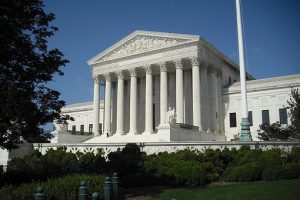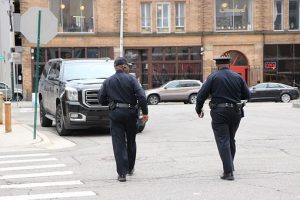Appellate Review of New Jersey Civil Service Commission Decisions
New Jersey Civil Service law gives significant protections to government employees in jurisdictions which have adopted civil service. It provides an appeals process that private sector employees and government employees in jurisdictions which have not adopted civil service do not enjoy. Most government employment decisions which do not involve minor discipline can be appealed to the New Jersey Civil Service Commission. Beyond that, decisions of the Civil Service Commission may be appealed to New Jersey’s appellate courts.
jurisdictions which have not adopted civil service do not enjoy. Most government employment decisions which do not involve minor discipline can be appealed to the New Jersey Civil Service Commission. Beyond that, decisions of the Civil Service Commission may be appealed to New Jersey’s appellate courts.
The Appeal Process
New Jersey Civil Service Commission decisions are considered “final agency actions” which may be appealed directly to the Appellate Division of the Superior Court of New Jersey “as of right.” This means that the Appellate Division has no discretion in whether to hear the case or not – it must hear the appeal. Appeals to the Appellate Division from final decisions of the Civil Service Commission must be filed in writing within 45 days after the decision.
 New Jersey Lawyers Blog
New Jersey Lawyers Blog



 in the case of
in the case of 

 progressive discipline in the context of a
progressive discipline in the context of a  employee before discipline may be imposed.
employee before discipline may be imposed. Jersey State Prison.
Jersey State Prison. Eligible veterans include only those who received a discharge not characterized as dishonorable and who served at least 90 days in World War I and World War II, or who served at least 14 days in the operations area in the following conflicts: the Korean War; the Vietnam War; the Lebanon Crisis of 1958; the Lebanon peacekeeping mission in the 1980s; the Grenada peacekeeping mission in 1983; the Panama peacekeeping mission; Operation Desert Shield/Desert Storm; Operation Northern Watch and Operation Southern Watch; Operation Restore Hope in Somalia; Operations Joint Endeavor and Joint Guard in Bosnia; Operation Uphold Democracy in Haiti (if the veteran received the Armed Forces Expeditionary Medal for their Haitian service); Operation Enduring Freedom; and Operation Iraqi Freedom. “Veterans” also include service members receiving injuries in those operations regardless of the length of their service in them.
Eligible veterans include only those who received a discharge not characterized as dishonorable and who served at least 90 days in World War I and World War II, or who served at least 14 days in the operations area in the following conflicts: the Korean War; the Vietnam War; the Lebanon Crisis of 1958; the Lebanon peacekeeping mission in the 1980s; the Grenada peacekeeping mission in 1983; the Panama peacekeeping mission; Operation Desert Shield/Desert Storm; Operation Northern Watch and Operation Southern Watch; Operation Restore Hope in Somalia; Operations Joint Endeavor and Joint Guard in Bosnia; Operation Uphold Democracy in Haiti (if the veteran received the Armed Forces Expeditionary Medal for their Haitian service); Operation Enduring Freedom; and Operation Iraqi Freedom. “Veterans” also include service members receiving injuries in those operations regardless of the length of their service in them.